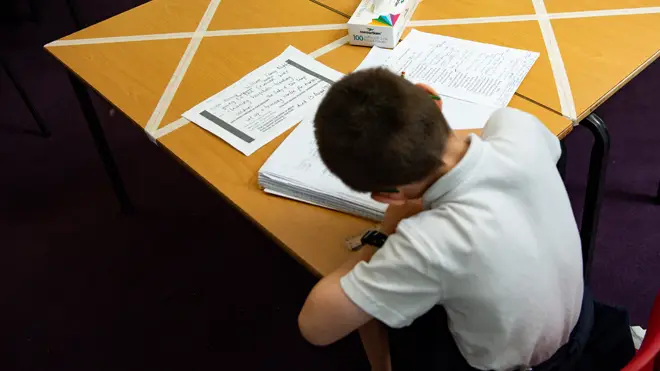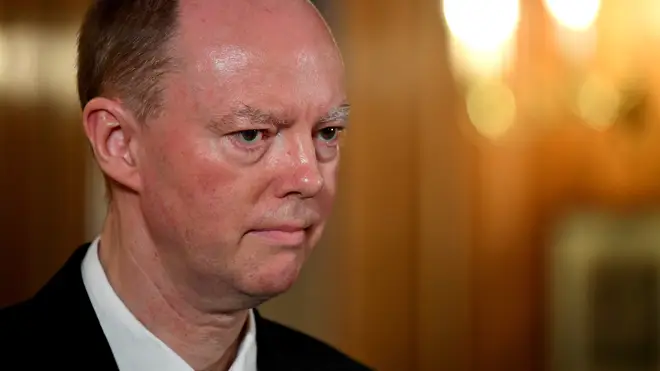
James O'Brien 10am - 1pm
22 August 2020, 23:05

The risk of children catching Covid-19 and developing serious problems is "incredibly small" while the evidence of long-term damage of missing school is "overwhelming", England's chief medical officer has said.
Professor Chris Whitty said that while the risk to children of Covid-19 from returning to school was "not zero" the evidence that not going to school damages children in the long run was "overwhelming".
His comments to reporters on Saturday come as he joined the UK's chief and deputy chief medical officers to issue a joint statement on schools and childcare reopening.

Senior Tory MP calls on Boris Johnson to create schools catchup programme 'left behind' children
Prof Whitty said the statement was not guidance to parents but laying out the evidence of "things we know with confidence, the things that we think are probable and also some of the things we don't know and making clear there is always some residual risk".

He said that there was "clear" evidence that the chances of children dying from Covid were "incredibly small" and they were less likely to get severe illness and end up in hospital due to the virus.
He added: "So the reason that is important to lay out is the chances of children catching Covid and then getting long-term serious problems as a result of it, solely due to going to school are incredibly small.

Mother's concerns over her children returning to school following lockdown
"They're not zero, but they're incredibly small.
"The chances of many children being damaged by not going to school are incredibly clear and therefore the balance of risk is very strongly in favour of children going to school because many more are likely to be harmed by not going than harmed by going, even during this pandemic."
In their joint statement the chief and deputy chief medical officers of England, Scotland, Wales and Northern Ireland said there were "no risk-free options" but school attendance was very important.
Covid-19 deaths in children and teenagers were "extremely rare" and almost all deaths were in children with significant pre-existing health conditions, they added.
The chief and deputy medical officers said that while transmission in schools does occur on current evidence it was not a "common route of transmission".
They said that teachers were not at an increased risk of dying from coronavirus compared to the general working-age population and that data from UK and international studies suggested transmission in schools may be largely staff to staff instead of pupils to staff.
Listen & subscribe: Global Player | Apple Podcasts | Google Podcasts | Spotify
They added: "This reinforces the need to maintain social distancing and good infection control inside and outside classroom settings, particularly between staff members and between older children and adults."
The chief and deputy chief medical officers said that reopening schools has not been usually followed by a surge in Covid-19 transmission but it could push the reproduction rate - the so-called R rate - above one.
If this happened it will require "local action and could mean societal choices" of imposing limitations on different parts of the community, they add.
They said: "Early identification and quickly managing outbreaks of Covid-19 in schools is essential as part of a local response to Covid-19.
"Clear advice for pupils and staff not to attend school with symptoms, and prompt availability of testing, appropriate isolation advice, and careful public health surveillance and monitoring of educational establishments are key to support the safe return to schools."
Prof Whitty said there were "no easy choices" in confronting coronavirus.
When asked about closing pubs or restaurants to keep schools open Prof Whitty added: "The aim is, as far as possible, to do things locally so that if the surge in transmission at any points in a local area, we try and keep the other actions to the local area and tailor those as best as we can to what is driving the increase in those areas.
"If it was shops in a particular area we would need to look at shops, if it was hospitality, we would need to look at hospitality."